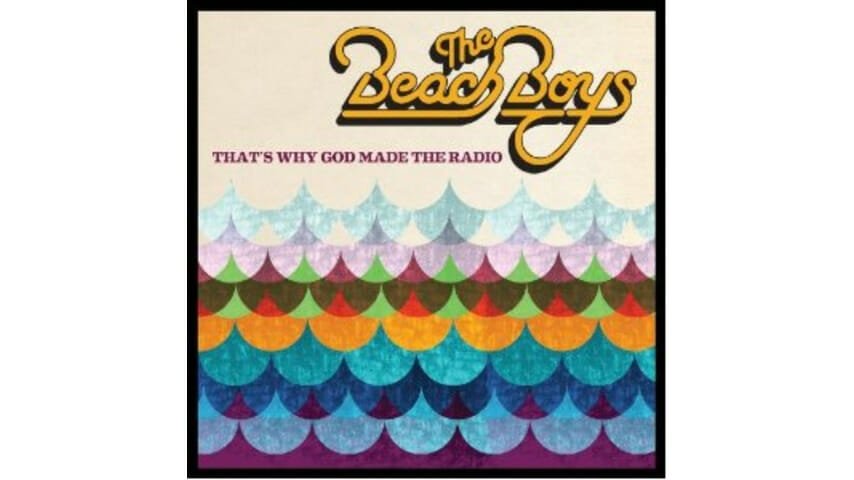The Beach Boys: That’s Why God Made the Radio

If there was ever a fitting time for The Beach Boys to throw in the towel, it was 2011—following the release of The SMiLE Sessions, the landmark, oft-bootlegged leftovers from Brian Wilson and company’s unfinished ‘60s masterwork. Instead, they went in the exact opposite direction: The group’s surviving members (Wilson; vocalists Al Jardine, Mike Love, Bruce Johnston; original guitarist David Marks) built on the momentum of that long-awaited release, reuniting for a 50th anniversary tour.
That reunion is nothing short of a pop music miracle: Wilson hadn’t performed live with the band since 1996, and the years since have brought several heavily publicized lawsuits over songwriting credits and usage of The Beach Boys name. But virtually no one (including The Beach Boys themselves) could have predicted the release of That’s Why God Made the Radio, their 29th studio album (and first batch of new material since 1992), let alone that it would be their best work since the ‘70s.
But make no mistake: While Radio does find the good ol’ boys harmonizing together again (with a subtle sweetness that effortlessly recalls their glory days), it’s a Beach Boys album only because Wilson willed it to be. The seeds of most tracks date back over a decade, to a series of fruitful sessions between Wilson and producer-instrumentalist Joe Thomas, who originally collaborated with Wilson on his 1998 solo album, Imagination. A stand-out from those hours and hours of recordings was a mid-tempo, ‘50s-styled ditty called “That’s Why God Made the Radio,” but instead of using the track as a springboard into a new solo album, Wilson shelved it away with an unselfish (and lofty) pride, claiming its potential could only be realized with his Beach Boys bandmates.
-

-

-

-

-

-

-

-

-

-

-

-

-

-

-

-

-

-

-

-

-

-

-

-

-

-

-

-

-

-

-

-

-

-

-

-

-

-

-

-








































